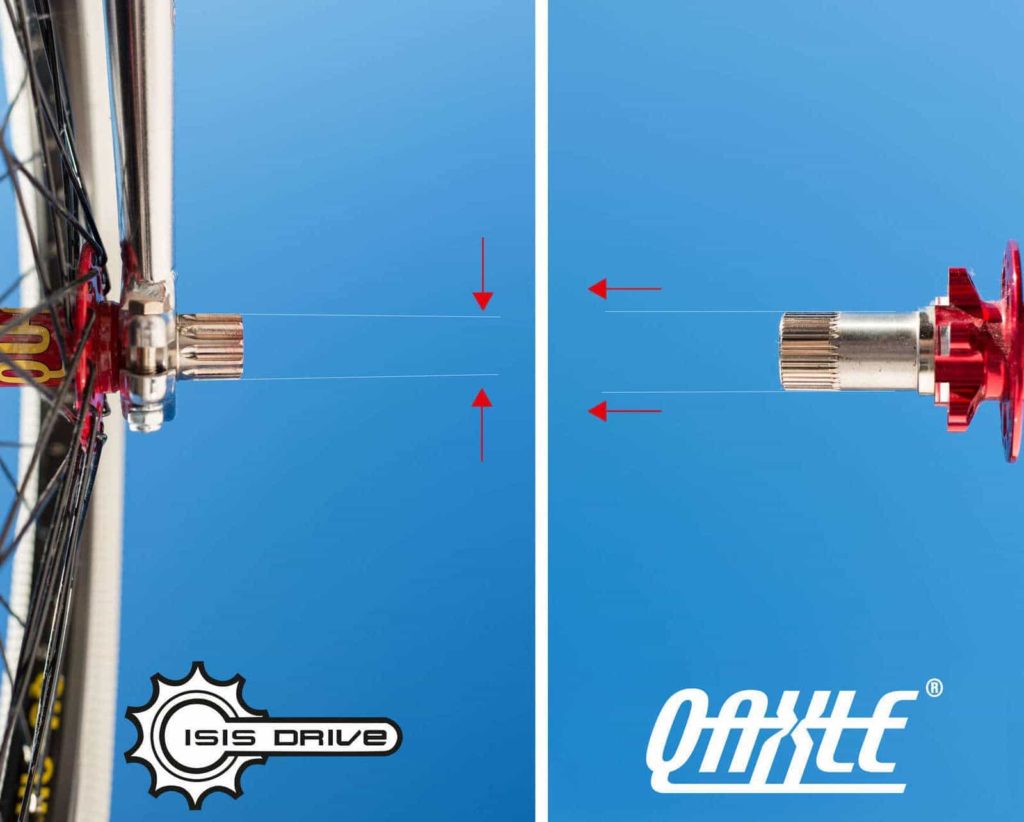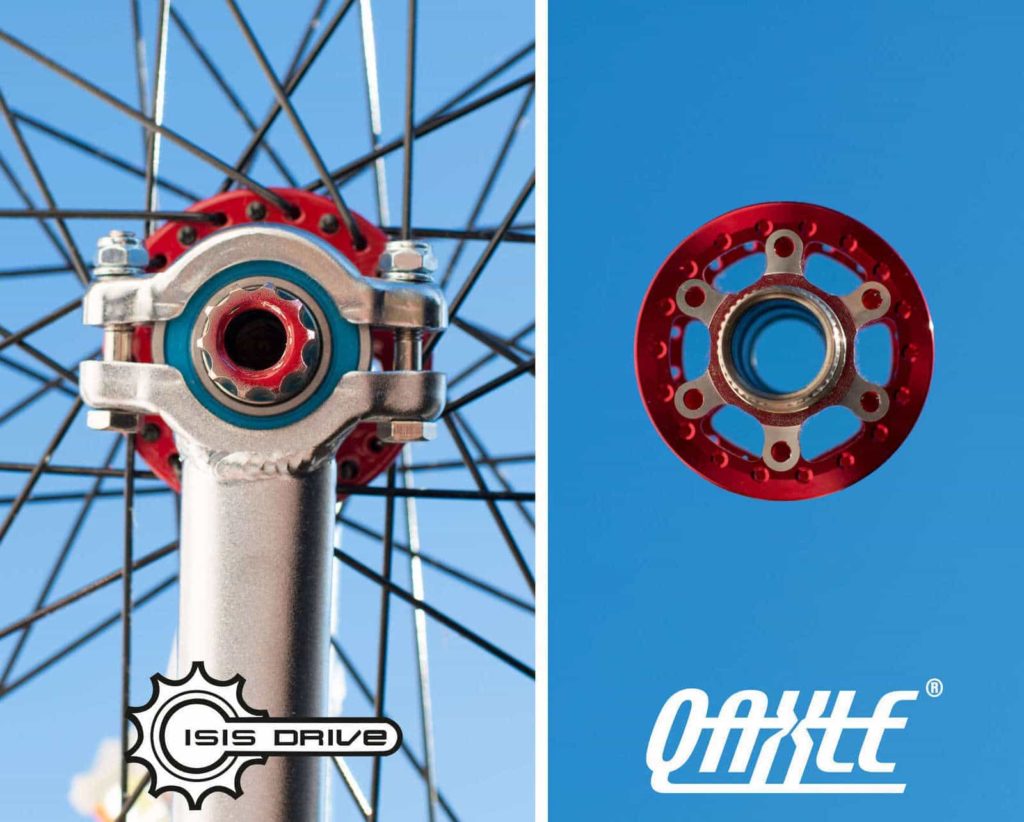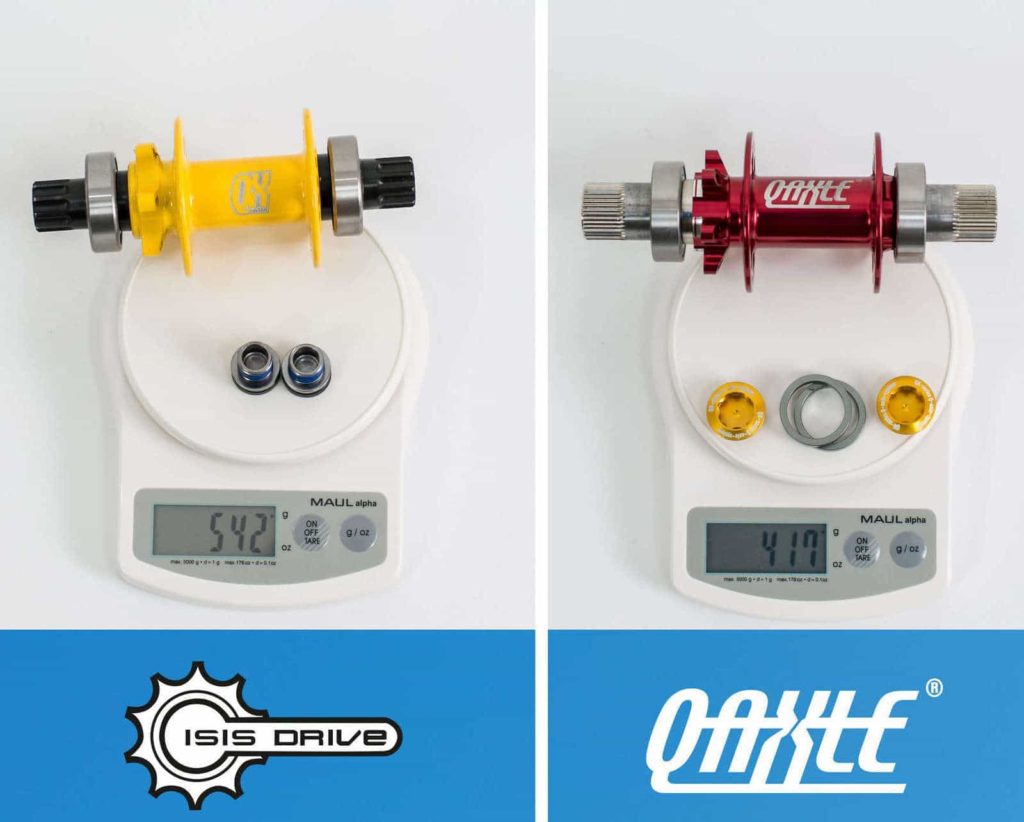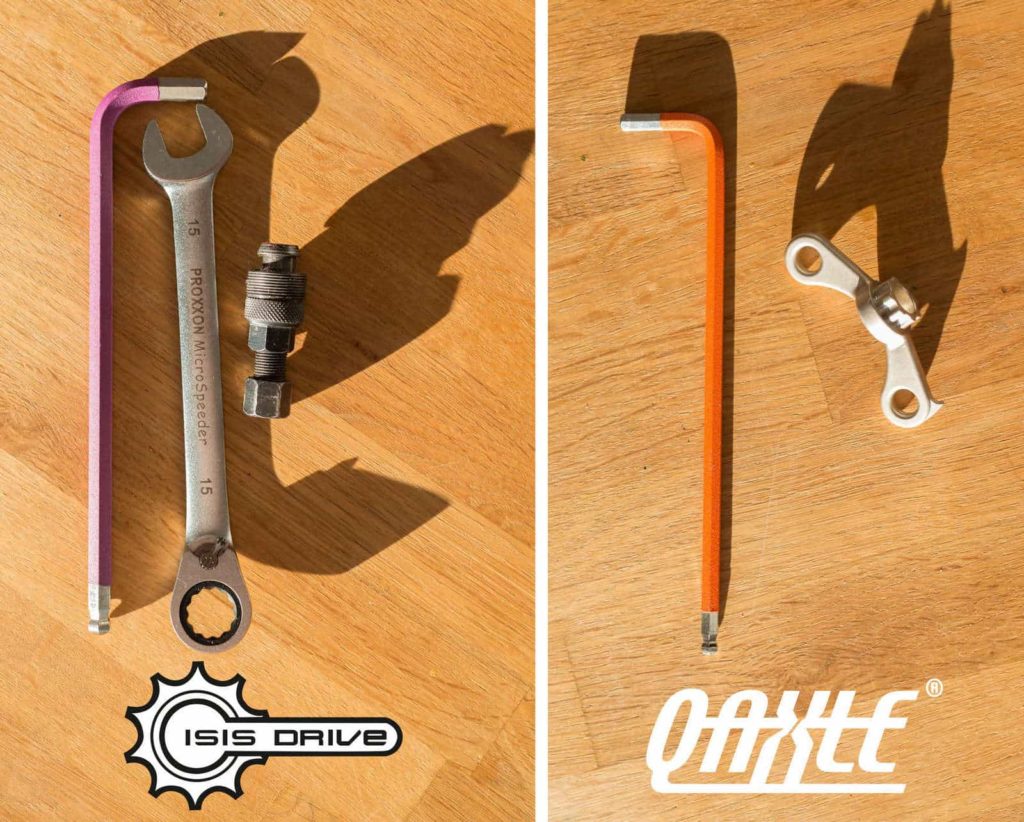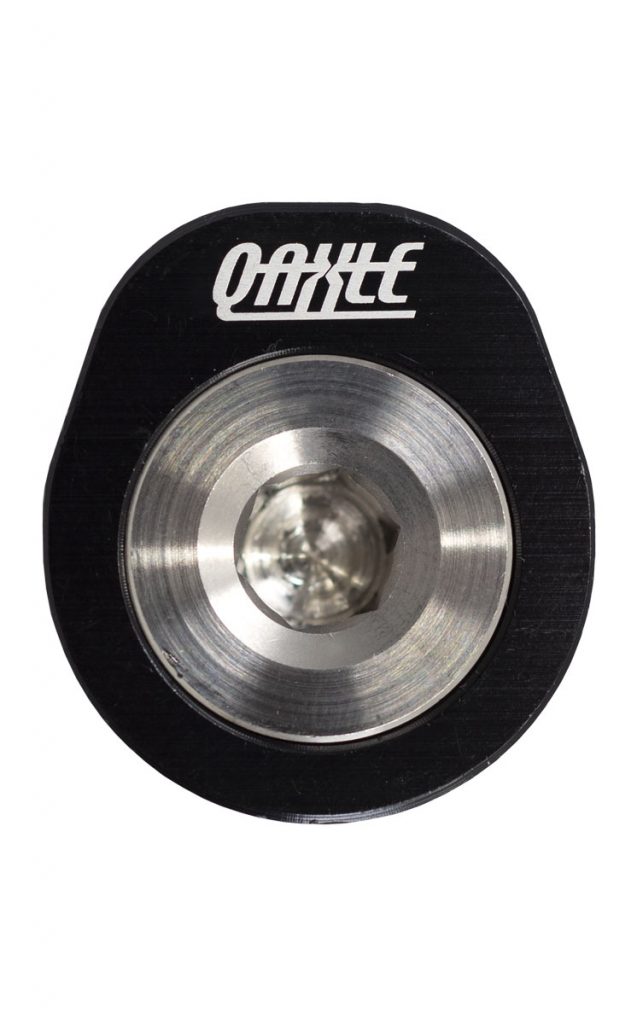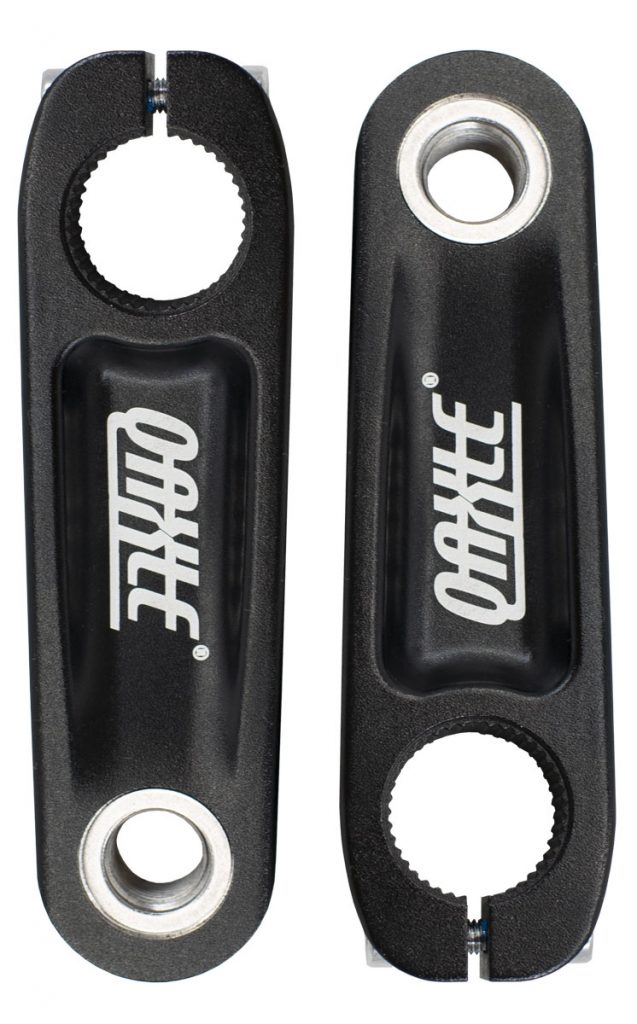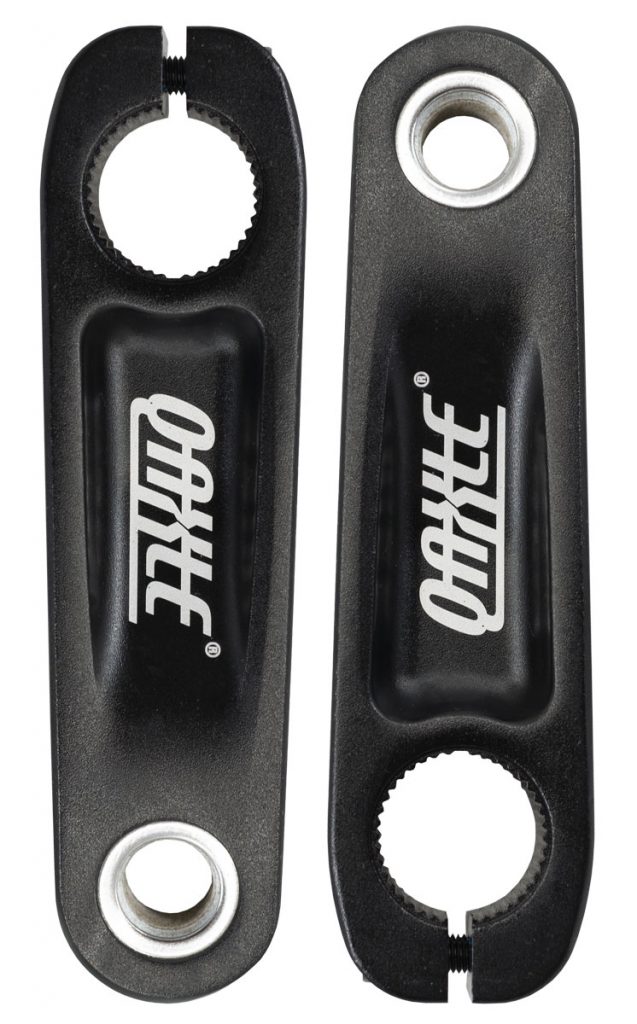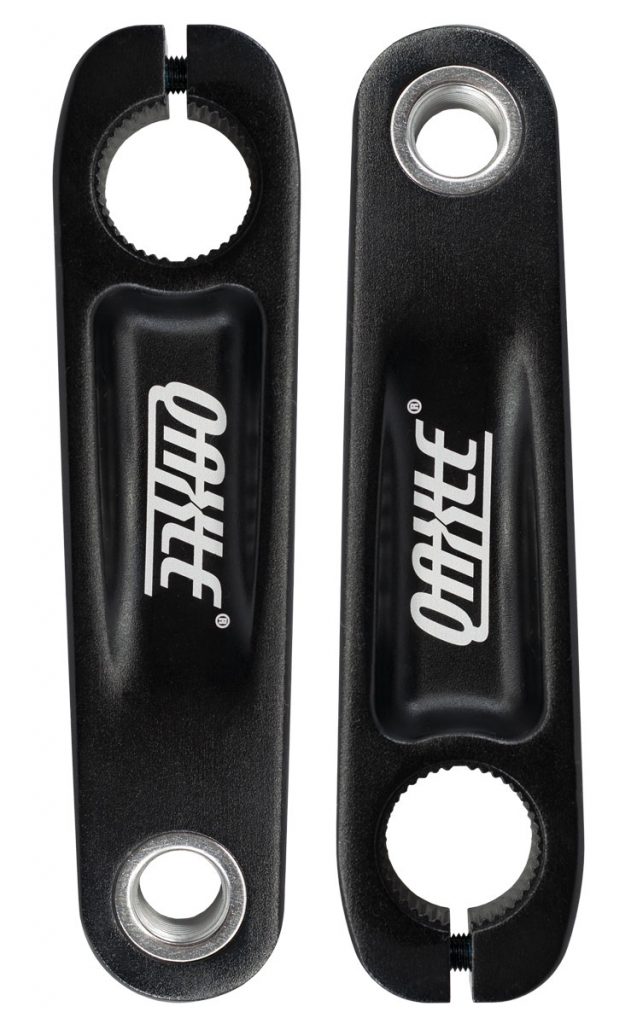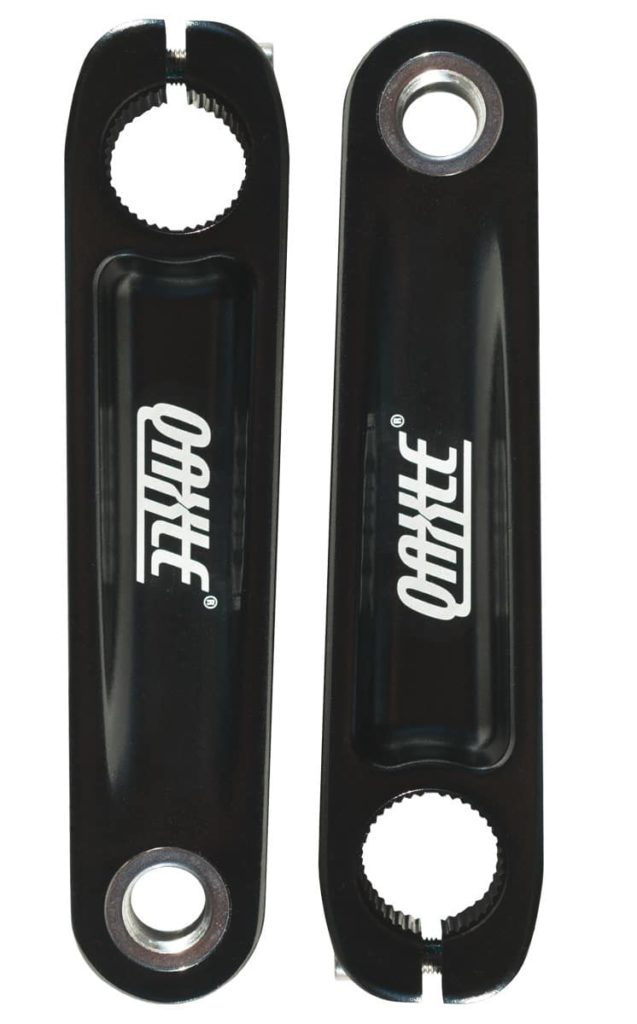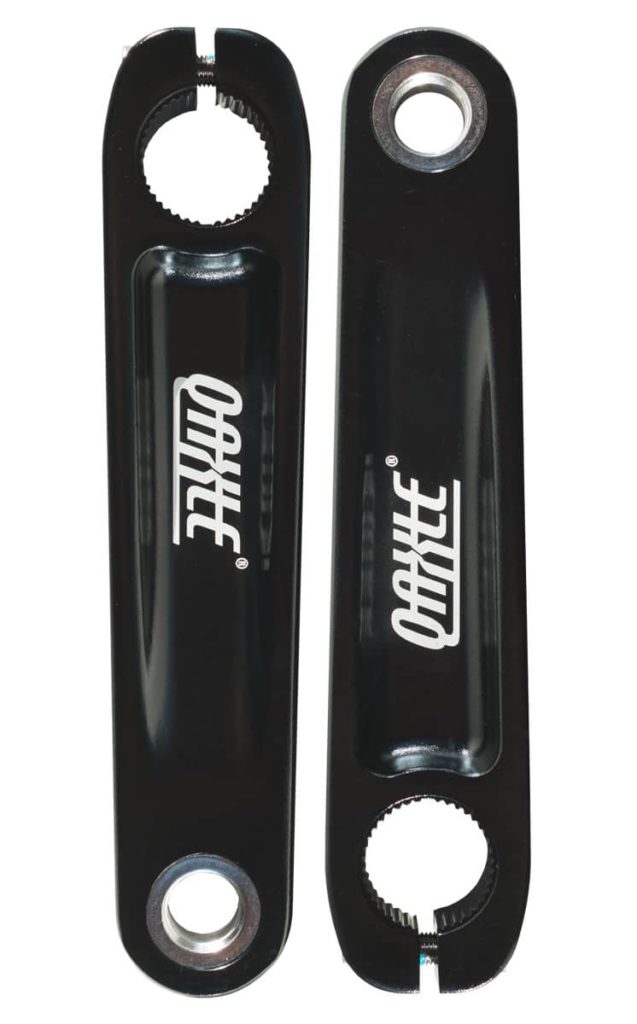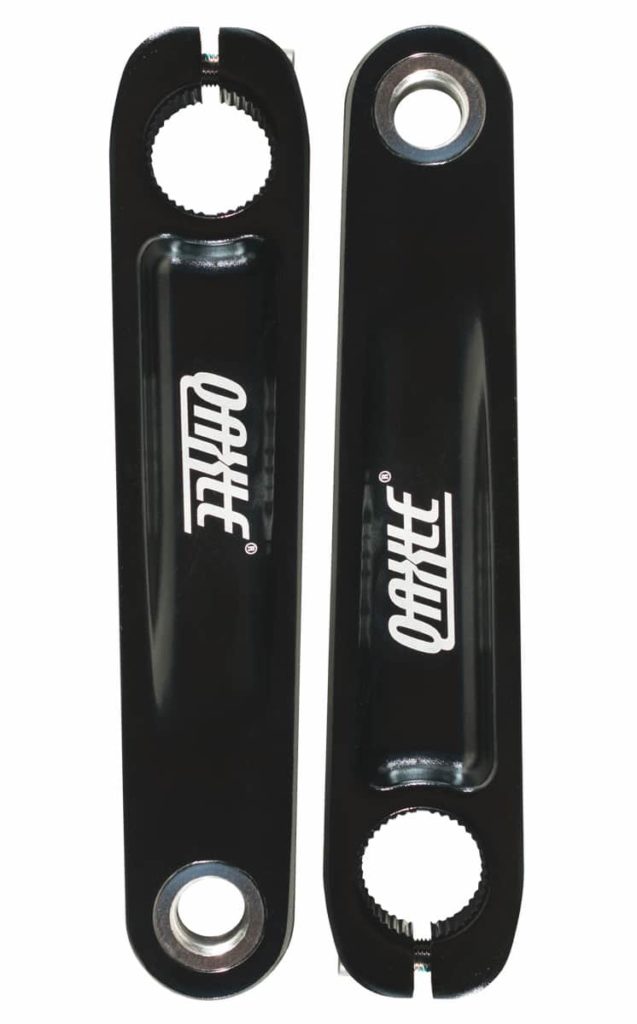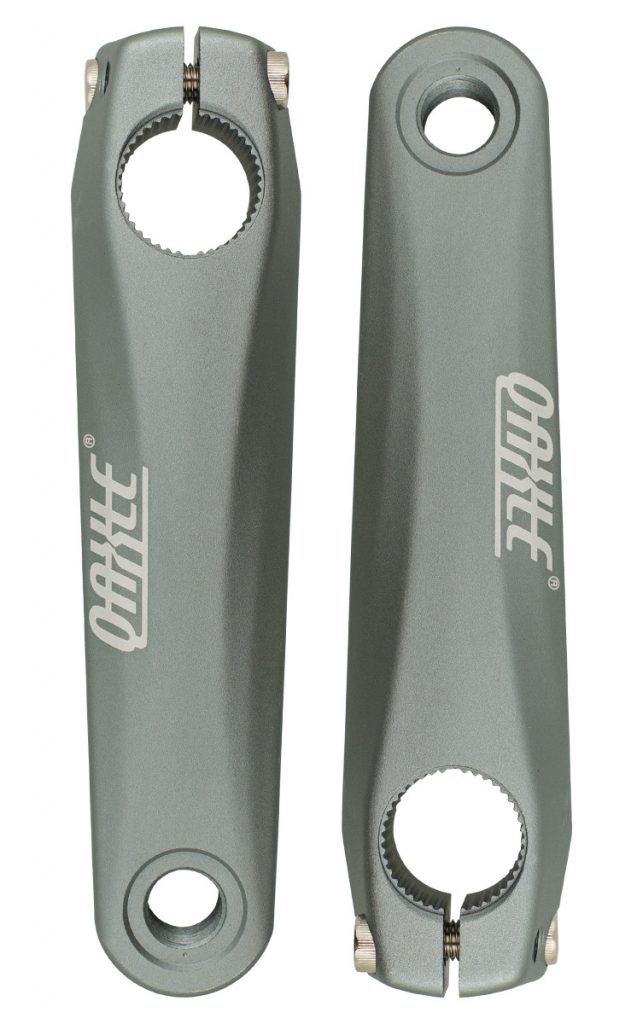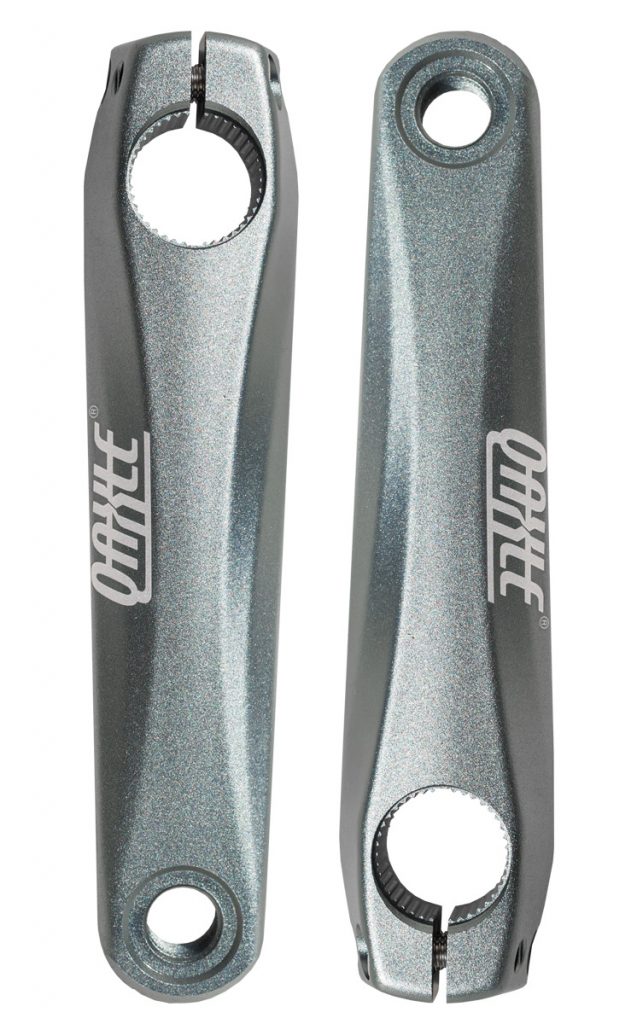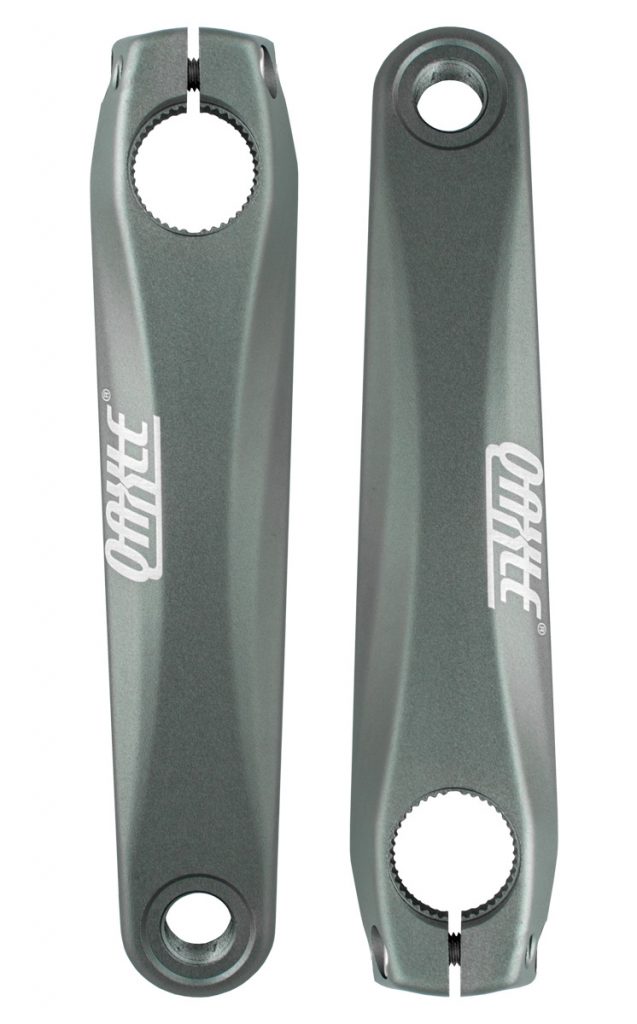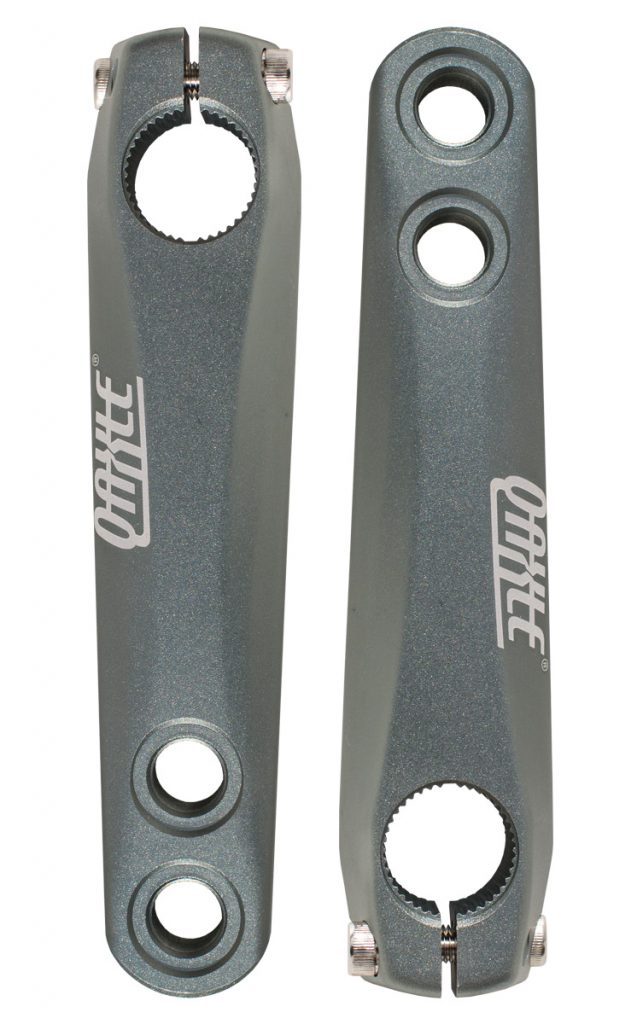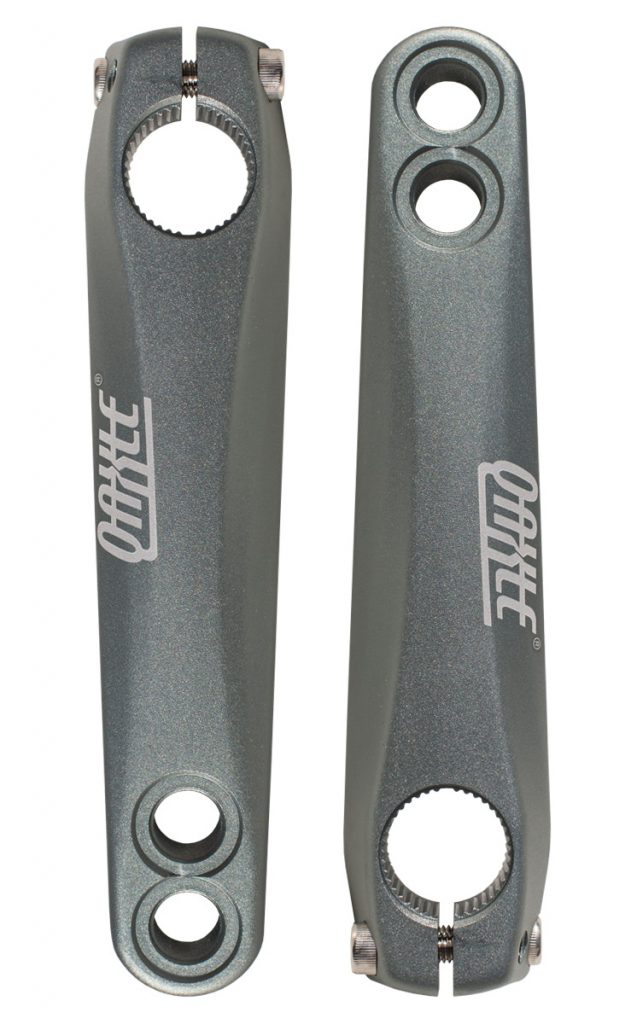Square taper axle? Multi-Spline? ISIS? Q-Axle!
The Q-Axle is the next step after the ISIS axle interface. The yellow QU-AX multispline-hub came from a typical BMX-bottom-bracket and had some resemblance with the Q-Axle. It was known as very robust. Later, we introduced the ISIS-interface to the unicycle-world – with all its pro’s and cons. Now it is time to make the next step. Which one? Read here.
The photo above shows the main difference between the ISIS and the Q-Axle interface. The ISIS-axle is conic towards the hub-center. A M8 or M12 bolt pushes the crank on this climbing surface and fixes the crank at its final place at the same time. Compared to square taper, the ISIS-system has a lot more of connection surface due to its more fine denture. Two surfaces on the square taper compared to ten rounded on the ISIS-interface. This interface wears a little with every crank assembly and disassembly, sometimes making a change of spacers necessary. It is not necessarily at the same place anymore.
On the Q-Axle interface, the axle is straight – and the denture is a lot finer which increases the connection surface even more. The axle is not conic, the crank is always positioned at the same place. Neither on the crank nor on the axle there will be noticeable wear. The aluminum cap puts it at its precise place without llots of force – and is then clamped with two hex-keys.
Damages like on the following photo do not happen anymore:
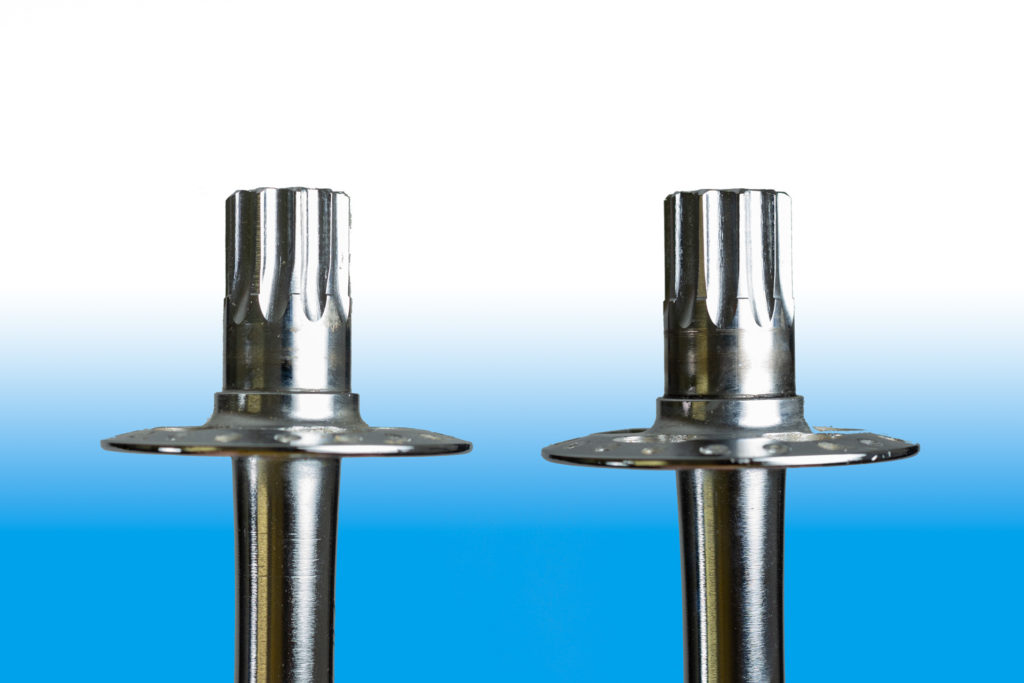
On this photo, you can see another advantage of Q-Axle: a bigger diameter allows us to reduce wall thickness dramatically. On this photo you can also see the finer denture increasing the connection surface of the interface.
Exactly this very low wall thickness and light aluminum caps instead of heavy steel bolts make the difference in weight – see for yourself.
Lastly, working on a Q-Axle equipped unicycle is more simpler – even on the road. You need a 5 mm hex-key and the Cap-Tool. Both does not need neither power, nor room, nor weight. No Extractors needed.
See how simple it is here:
And with a little trick, even easier:
We are constantly enlarging the crank-length range. Double hole cranks are available – and a successor of the famous ZeroQ-crank for Q-Axle is already being tested by riders. Right now, the following crank-lengths are available: 110, 125, 136 and 145 as well as 127, 137, 145 in ZeroQ-Axle – far more than in the beginning of ISIS. And it’s going to be even more.

